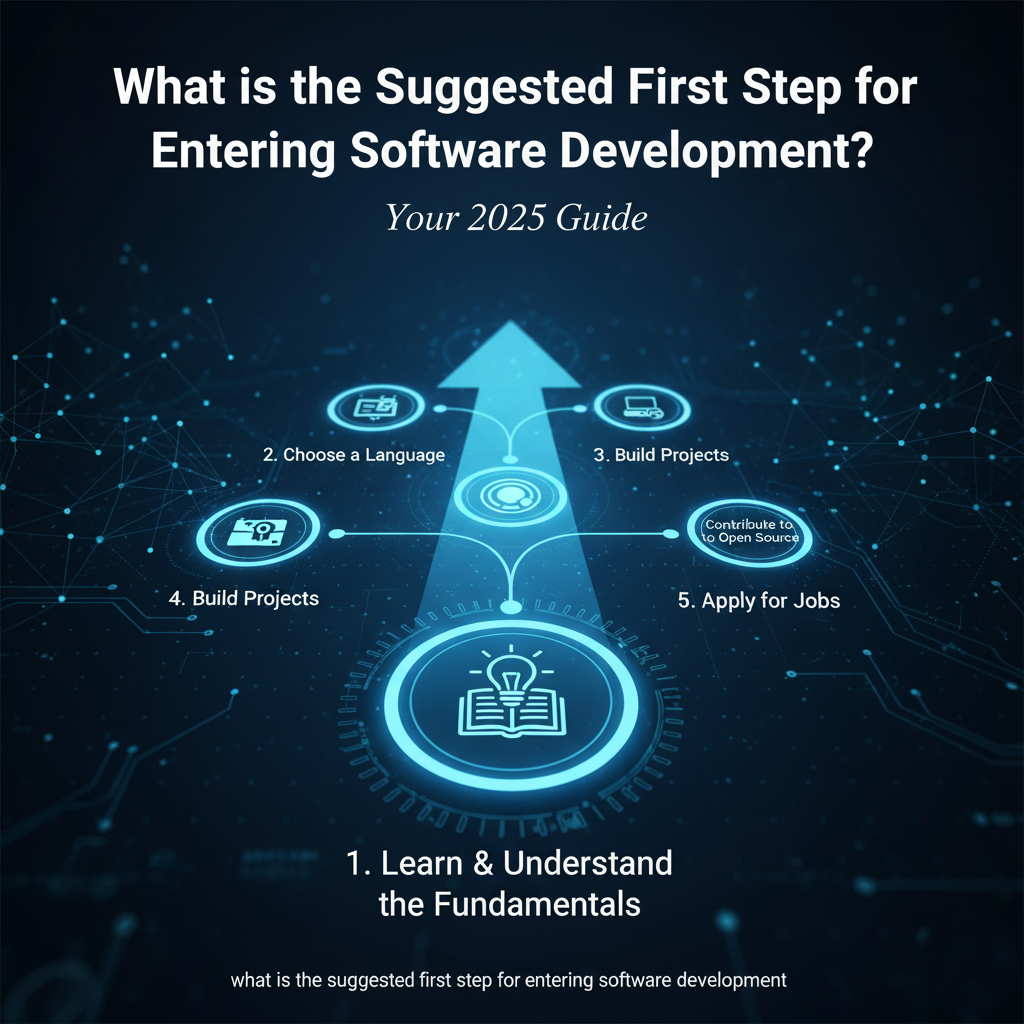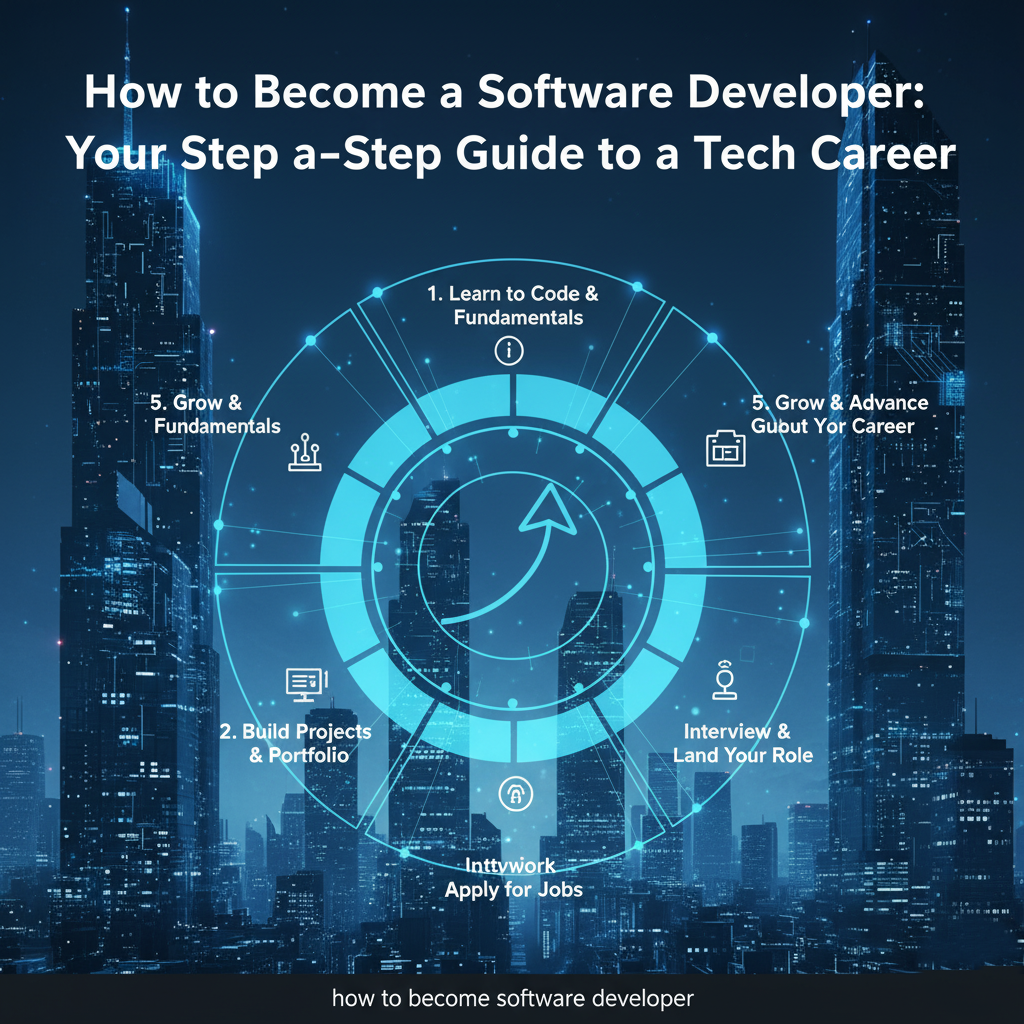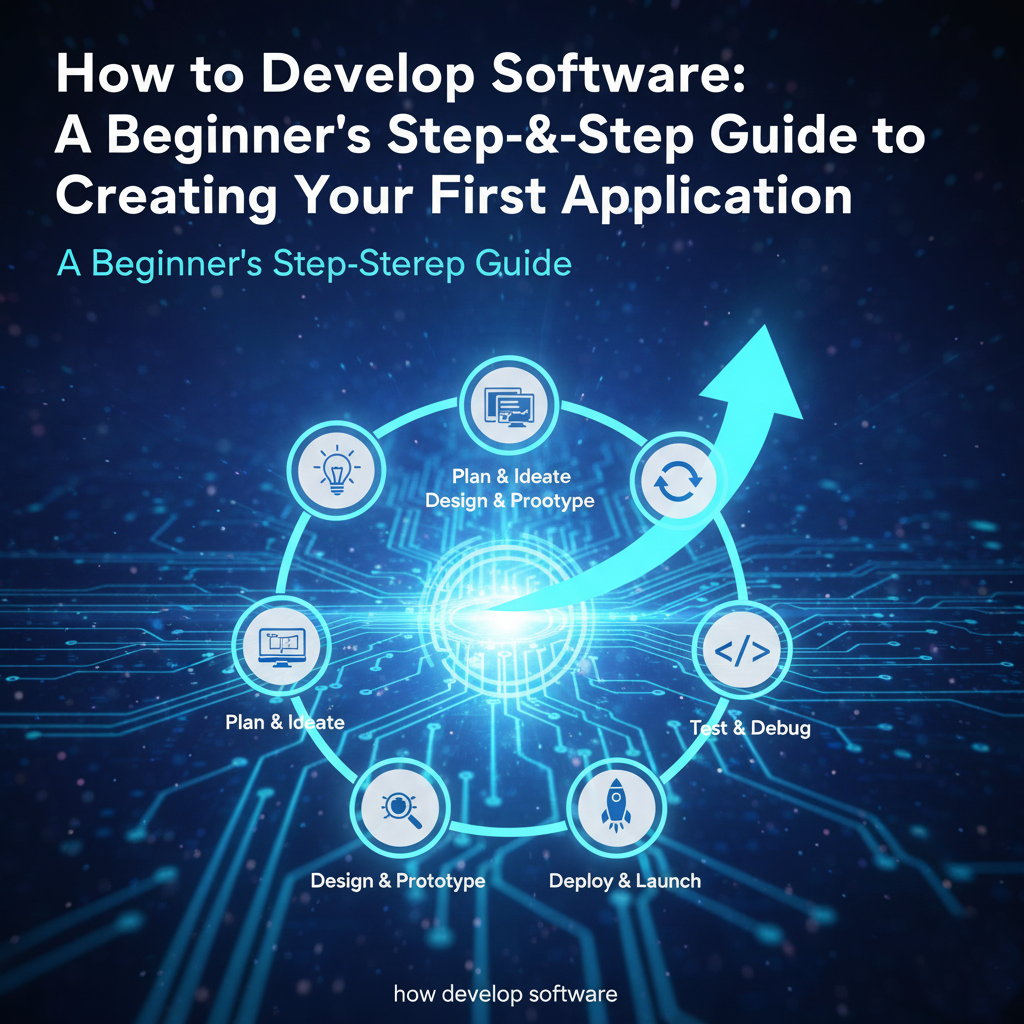Feeling overwhelmed by the endless programming languages, frameworks, and career paths in software development? You’re not alone. Many aspiring developers get stuck before writing their first line of code, paralyzed by the question: “Where do I even begin?”
The answer might surprise you in its simplicity. The most suggested first step for entering software development isn’t choosing a language or signing up for a bootcamp—it’s mastering fundamental programming concepts. This approach might seem less exciting than diving straight into building apps, but it’s the most reliable way to build a sustainable career in tech.
Why Learning Fundamentals is the Crucial First Step
Think of programming fundamentals as the foundation of a house. You wouldn’t build a house without a solid foundation, and you shouldn’t build a coding career without understanding core concepts first. Here’s why this approach works:
1. Fundamentals Transfer Across Languages
Whether you eventually work with Python, JavaScript, Java, or any other language, the basic concepts remain the same. Variables, loops, conditionals, and functions work similarly across most programming languages. By learning these concepts first, you’re investing in knowledge that will serve you for your entire career.
2. You’ll Learn Faster Later
Spending 2-3 months on fundamentals might seem slow initially, but it actually accelerates your learning long-term. Once you understand how programming works at its core, picking up new languages and frameworks becomes significantly easier.
3. Better Problem-Solving Skills
Coding isn’t just about writing syntax—it’s about solving problems. Fundamentals teach you how to think like a programmer, breaking down complex problems into manageable steps. This skill is more valuable than memorizing language-specific syntax.
4. Avoids Early Burnout
Jumping straight into a complex framework without understanding the basics often leads to frustration and quitting. When you hit a wall (and you will), understanding fundamentals gives you the tools to troubleshoot effectively rather than feeling completely lost.
The Core Fundamental Concepts to Master First
Focus on these essential concepts before worrying about specialization:
- Variables and Data Types: Learn how to store and manipulate different kinds of information (numbers, text, true/false values)
- Control Structures: Understand how to make decisions (if/else statements) and repeat actions (loops)
- Functions/Methods: Master creating reusable blocks of code
- Basic Input/Output: Learn how programs communicate with users and other systems
- Debugging Basics: Develop the crucial skill of finding and fixing errors
How to Approach Learning the Fundamentals
Choose a Beginner-Friendly Language
While the concepts matter more than the language, starting with a beginner-friendly option helps. We recommend:
- Python: Known for its readable syntax that almost looks like English
- JavaScript: Immediate feedback through web browsers and massive community support
Both languages allow you to focus on concepts rather than fighting with complex syntax.
Follow Structured Learning Paths
Free resources provide excellent guided learning:
- freeCodeCamp: Offers interactive coding challenges and projects
- The Odin Project: Provides a comprehensive full-stack JavaScript path
- CS50: Harvard’s famous introduction to computer science (free online)
Practice Consistently
Consistency beats intensity. Thirty minutes daily is more effective than eight hours once a week. Build a coding habit by:
- Scheduling regular practice sessions
- Solving small coding challenges daily
- Building mini-projects that interest you
Common First-Step Mistakes to Avoid
Analysis Paralysis
Don’t spend weeks researching the “perfect” language or path. The best language to start with is the one that keeps you coding. Python and JavaScript are both excellent choices—pick one and stick with it for at least three months.
Tutorial Hell
Watching tutorial videos without practicing is like watching cooking shows without ever entering a kitchen. The ratio should be approximately 20% learning theory and 80% practicing code.
Skipping to Advanced Topics
Resist the urge to jump straight into frameworks like React or machine learning. These advanced topics will make much more sense—and be easier to learn—once you have solid fundamentals.
Your First 30-Day Learning Plan
Week 1: Basic Building Blocks
- Learn about variables and basic data types
- Practice simple arithmetic operations
- Write programs that take input and produce output
Week 2: Making Decisions
- Master if/else statements
- Learn logical operators (AND, OR, NOT)
- Build simple interactive programs
Week 3: Repetition and Reusability
- Understand different types of loops (for, while)
- Learn to write basic functions
- Practice breaking problems into smaller steps
Week 4: Your First Project
- Combine everything you’ve learned
- Build a simple calculator, number guessing game, or to-do list
- Practice debugging when things go wrong
Tools and Resources to Get Started
Learning Platforms:
- freeCodeCamp (free)
- Codecademy (free tier available)
- The Odin Project (free)
Practice Sites:
- LeetCode (start with easy problems)
- Codewars (gamified coding challenges)
- HackerRank (algorithm practice)
Development Environment:
- Visual Studio Code (free, beginner-friendly code editor)
- GitHub (for saving and sharing your code)
When Are You Ready for the Next Step?
You’ll know you’ve mastered the fundamentals when you can:
- Solve basic coding challenges without constantly referring to documentation
- Understand how to break down simple problems into coding steps
- Read and understand basic code written by others
- Build small complete projects that work
This typically takes 2-3 months of consistent practice for most beginners.
Conclusion
The excitement of building your first website or app is tempting, but investing time in fundamentals first will pay dividends throughout your coding journey. This approach transforms you from someone who copies code from tutorials to someone who understands what they’re building and why.
Remember that every expert developer started where you are now. The path might seem long, but focusing on fundamentals first is the shortest route to true proficiency. Start today with one simple concept, practice consistently, and before you know it, you’ll have built the foundation for a successful career in software development.
Frequently Asked Questions (FAQ)
What programming language should I learn first?
Python and JavaScript are both excellent choices for beginners. Python has simpler syntax, while JavaScript lets you see immediate results in a web browser. Choose based on whether you’re more interested in general programming or web development.
How long should I spend learning fundamentals before specializing?
Most beginners need 2-3 months of consistent study to grasp the fundamentals well enough to choose a specialization confidently. Don’t rush this stage—it’s the most important investment you’ll make in your coding education.
Can I skip fundamentals if I just want to build websites?
No. Even website development requires understanding fundamentals like variables, functions, and logic. Skipping these will leave you unable to troubleshoot or build custom features beyond basic templates.
Do I need a computer science degree to learn fundamentals?
Not at all. Many excellent developers are self-taught using free online resources. A degree provides depth and structure, but you can learn all the fundamentals you need through dedicated self-study.




